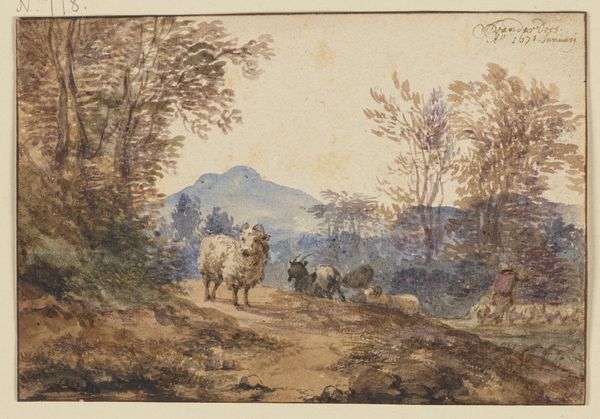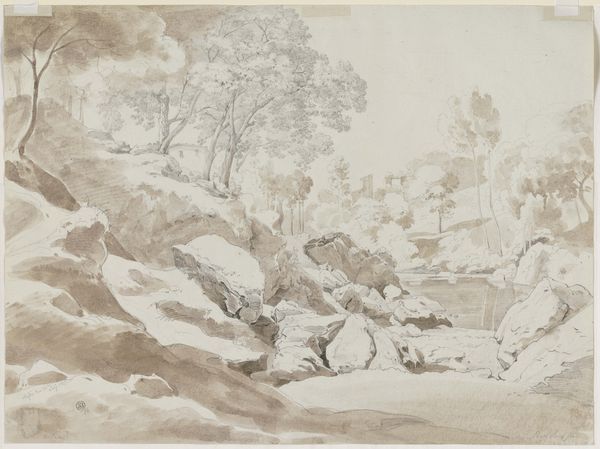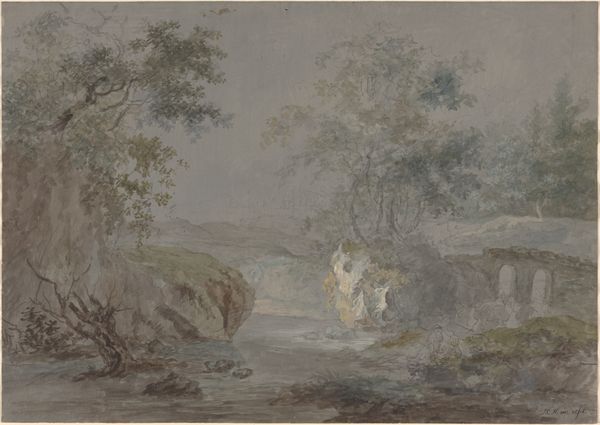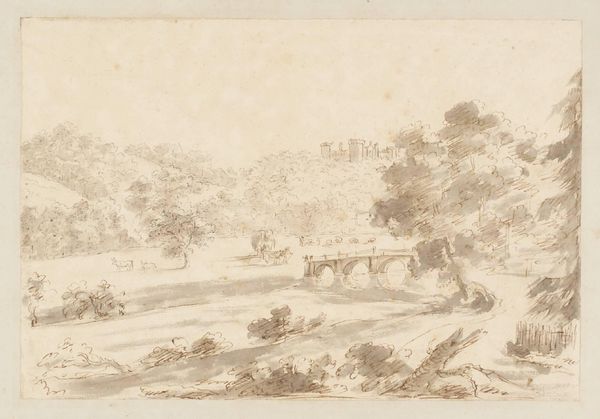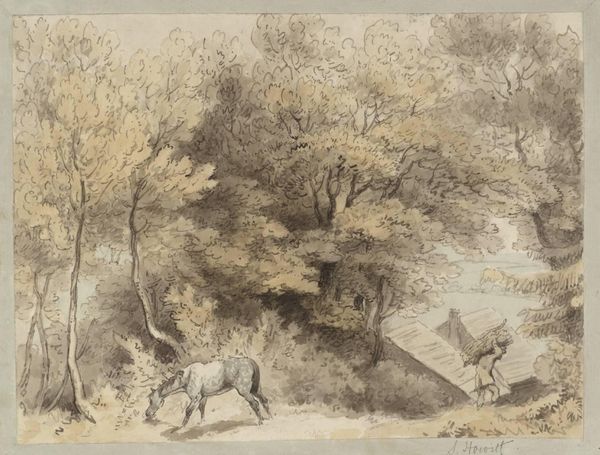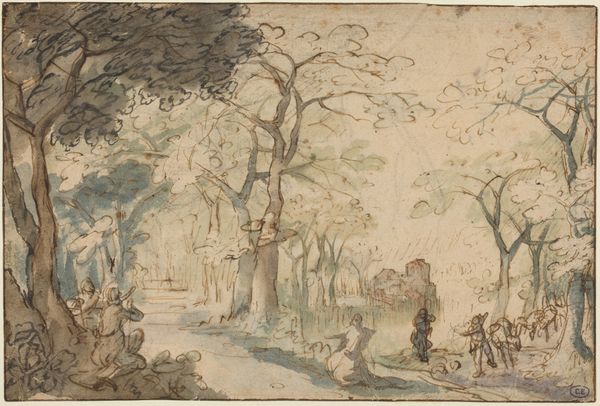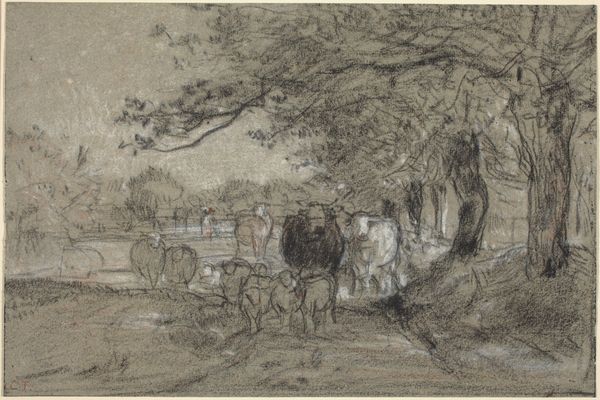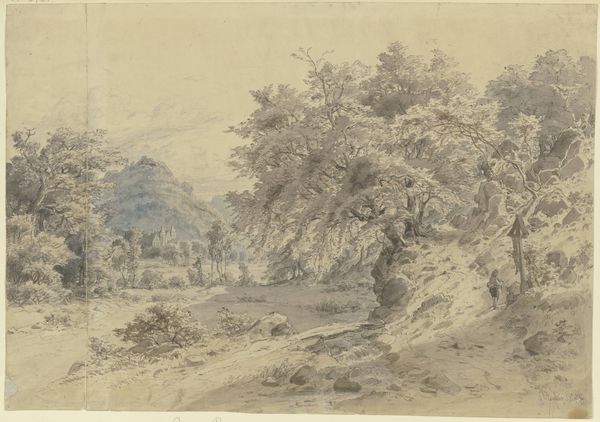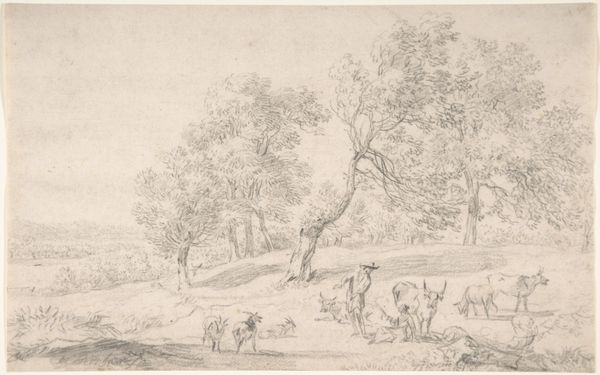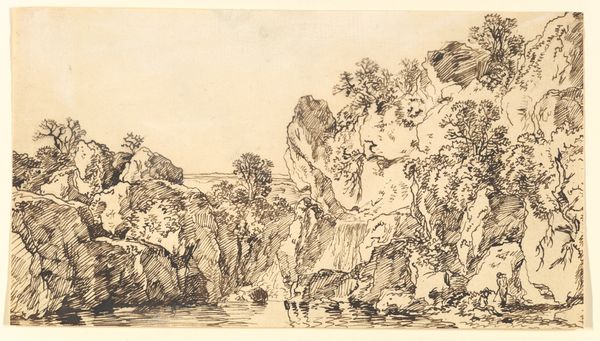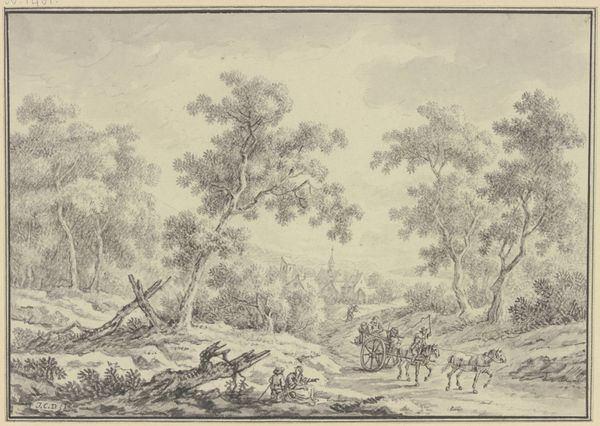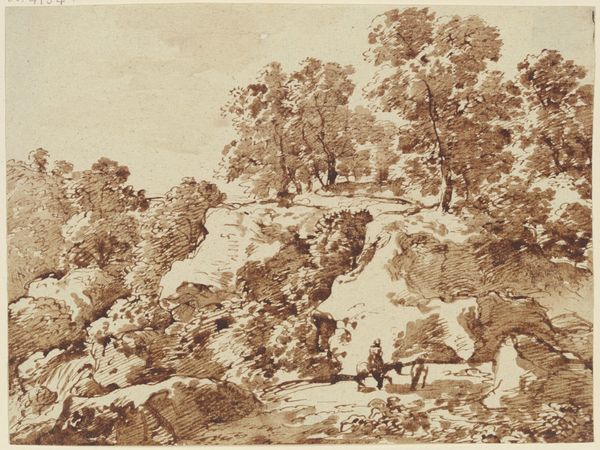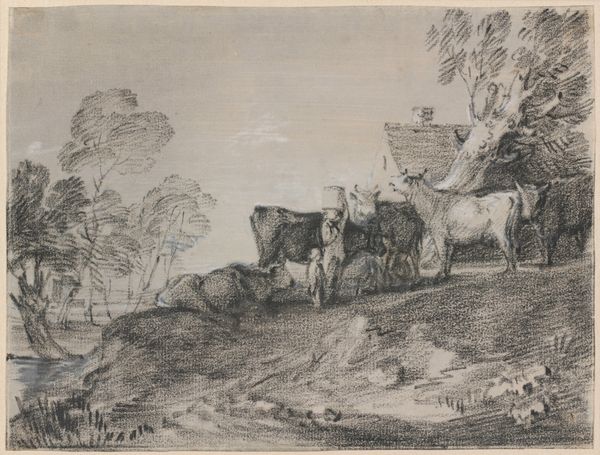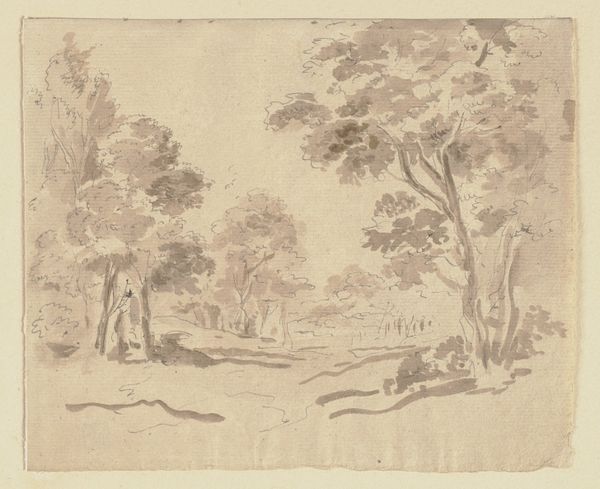
Copyright: Public Domain
Friedrich Müller rendered this watercolor and ink drawing of cattle and a shepherd in 1779. The symbolism of cattle, so prevalent in this image, carries deep roots in human history. In ancient cultures, from Egypt to Greece, cattle were not merely livestock; they were potent symbols of fertility, abundance, and divine power. Think of Hathor, the Egyptian goddess, often depicted with bovine features, embodying motherhood and nourishment. The humble cow, then, becomes a vessel of profound cultural significance. Even the shepherd embodies the pastoral ideal, connecting us to an idyllic vision of nature and simplicity. But consider how this pastoral image is charged with the symbolism of something far more primal. It is not only about the beauty of nature but also taps into a deep-seated longing for a lost paradise, a longing that lingers in our collective memory. This artwork then becomes a mirror reflecting our complex relationship with nature, a relationship shaped by both admiration and a persistent, underlying sense of loss.
Comments
No comments
Be the first to comment and join the conversation on the ultimate creative platform.
